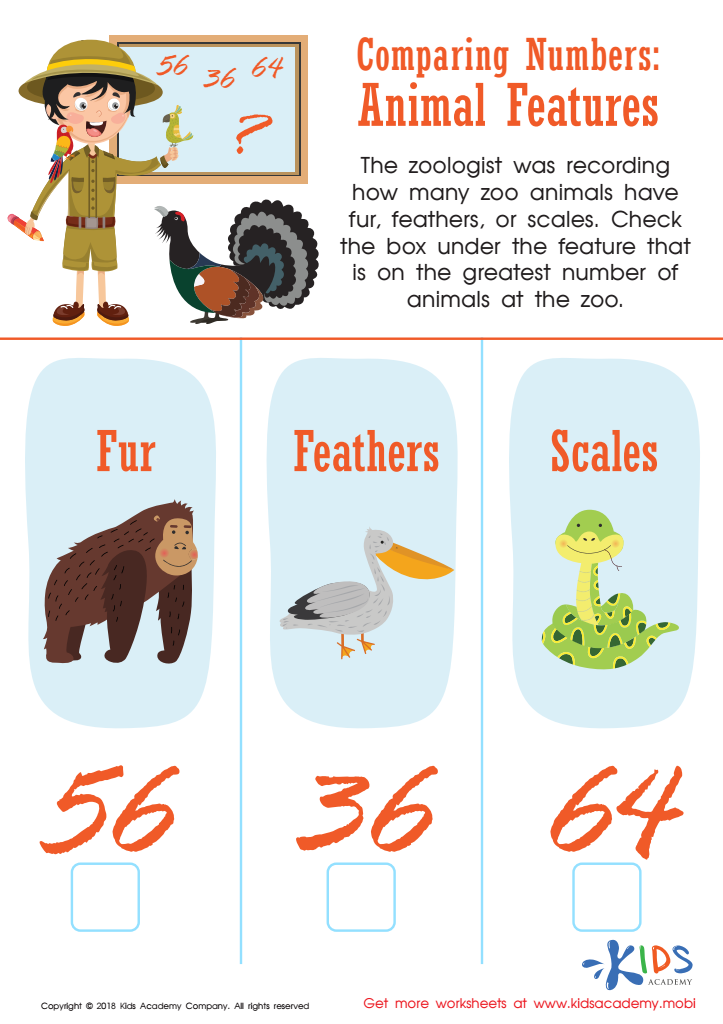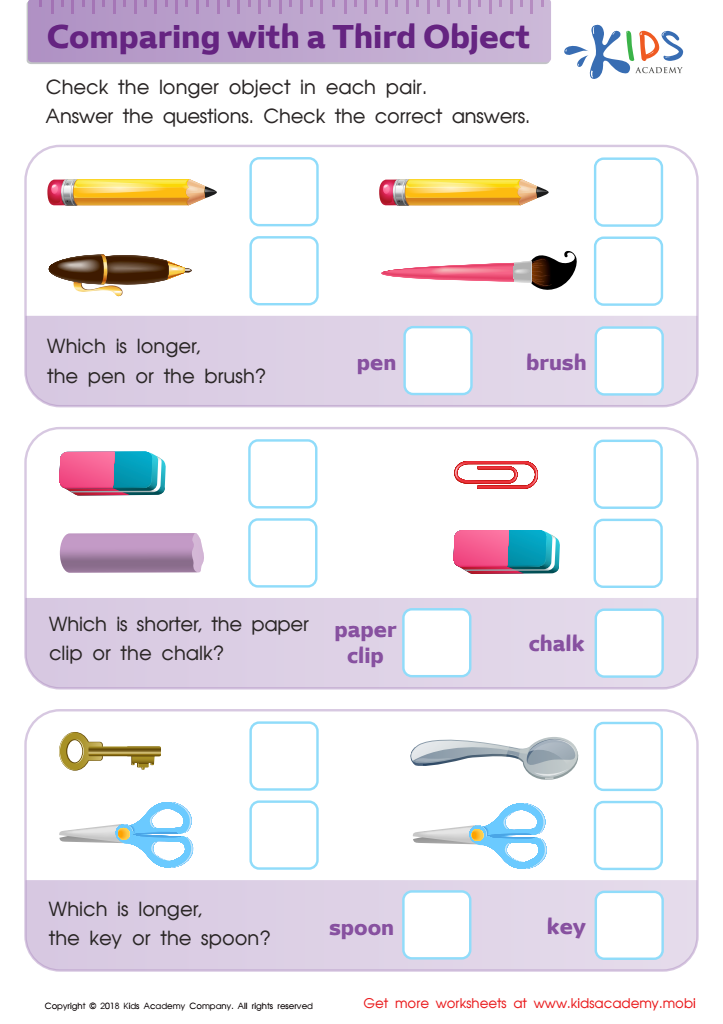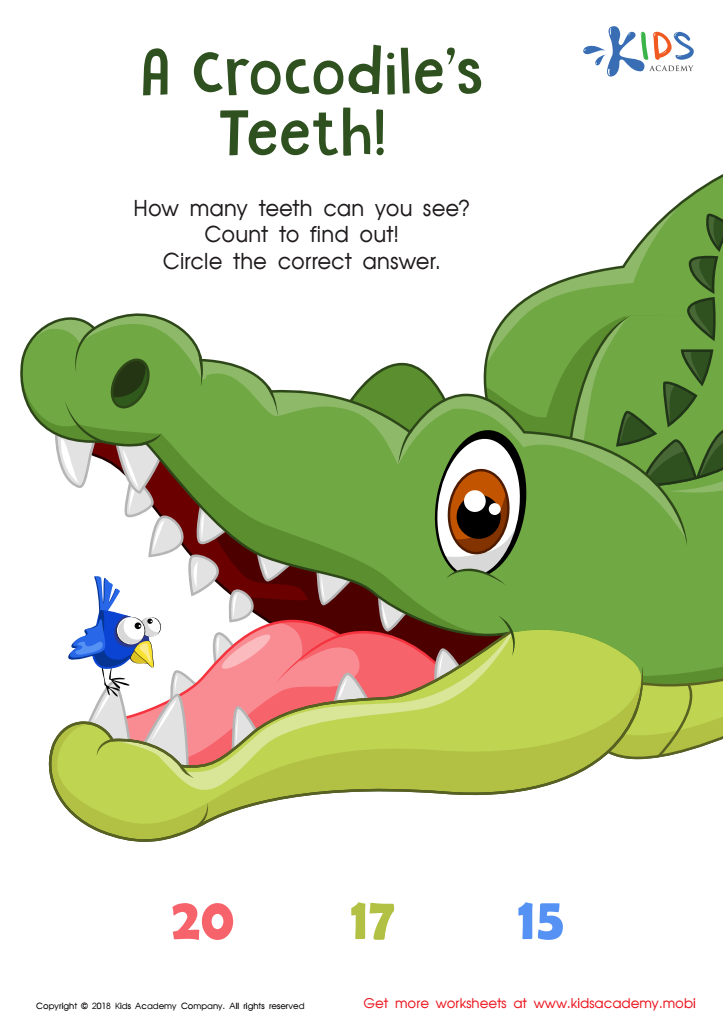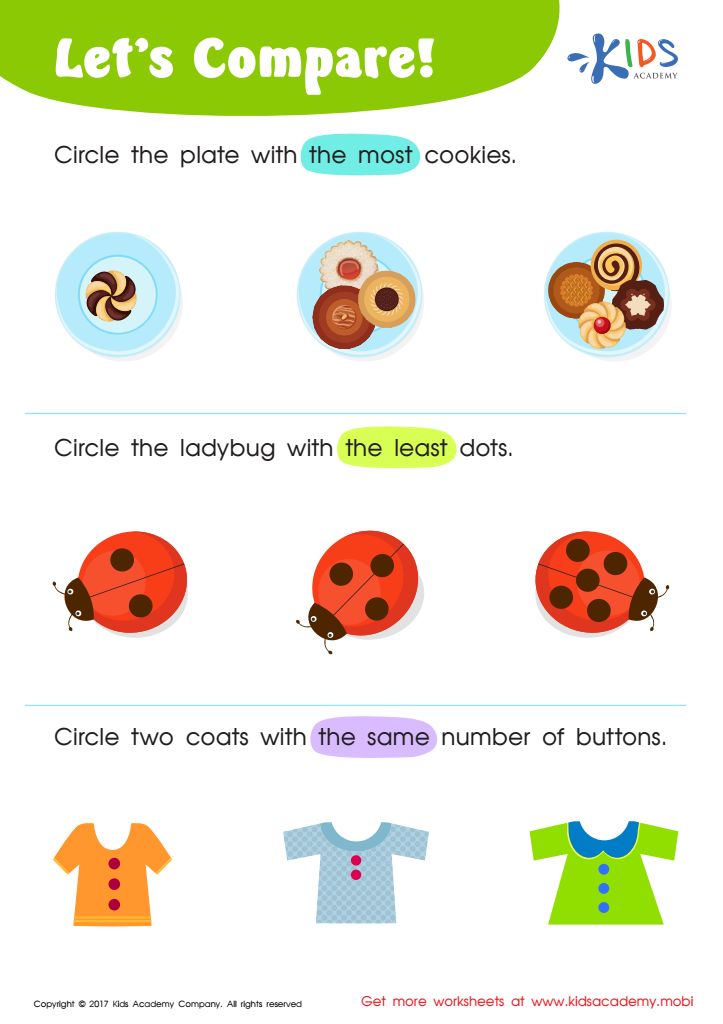Understanding comparisons Normal Math Worksheets for Ages 3-6
4 filtered results
-
From - To
"Understanding Comparisons" normal math worksheets for ages 3-6 focus on nurturing fundamental math skills in a fun and approachable manner. These thoughtfully designed worksheets help young learners grasp the concept of comparing numbers, sizes, weights, and quantities. Perfect for preschool and kindergarten children, the engaging activities aid in developing essential cognitive abilities such as critical thinking and problem-solving. By exploring comparisons, children build a strong foundation in math, setting them up for future success. Ideal for both classroom and home use, these resources transform math learnings into an enjoyable experience. Visit Kids Academy to explore our comprehensive selection of comparison worksheets.


Animal Features Worksheet


Comparing with a Third Object Worksheet


A Crocodile's Teeth Worksheet


Matching: Classifying Toys by Size Worksheet
Understanding comparisons in mathematics for children aged 3-6 is crucial as it lays a foundational pillar for higher-level mathematical concepts. During these formative years, children’s cognitive abilities develop rapidly, and introducing them to comparisons such as greater than, less than, or equal to helps sharpen their critical thinking and problem-solving skills.
Firstly, comparisons aid in basic counting and number sense, essential skills as children begin to navigate numbers. When children learn to distinguish between quantities and objects, they build an intuitive understanding of numbers and their relationships. For instance, recognizing that 5 apples are more than 3 apples strengthens their ability to perform simple arithmetic operations like addition and subtraction later on.
Moreover, comparisons extend beyond numbers and into everyday thinking. They enhance children's vocabulary and language skills by introducing comparative terms like bigger, smaller, longer, and shorter. These skills readily translate into other subjects, fostering a well-rounded educational development.
Additionally, engaging in activities that involve comparisons encourages children to observe, analyze, and make informed judgments - key cognitive tasks that support overall intellectual growth. Parents and teachers act as guides, creating interactive and meaningful learning experiences, sparking curiosity and a natural love for learning in young minds. Thus, nurturing an understanding of comparisons from an early age is integral to holistic early childhood education.

 Assign to My Students
Assign to My Students



.jpg)












